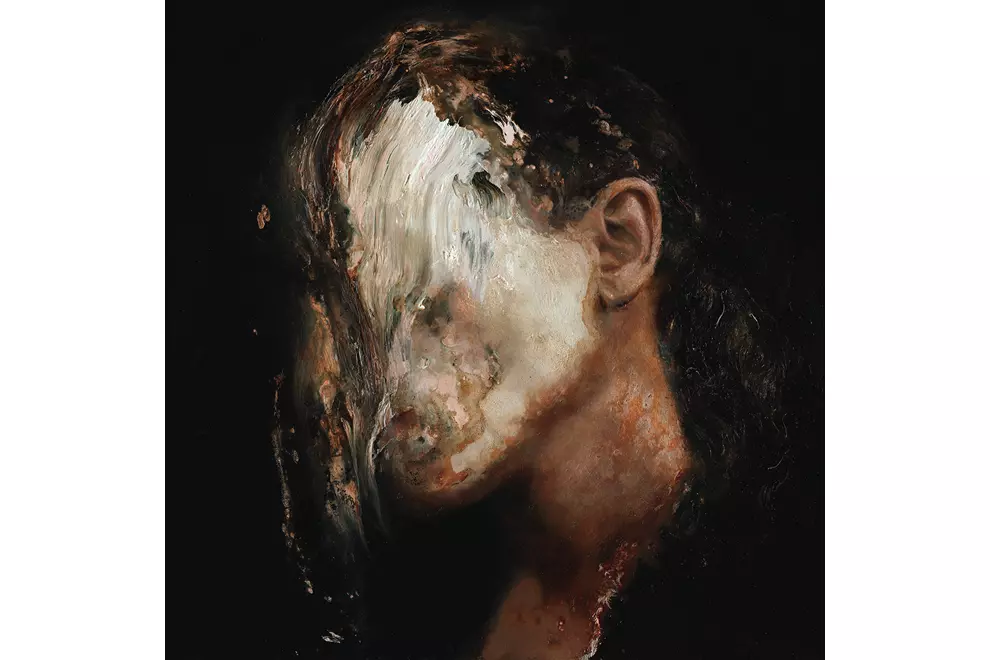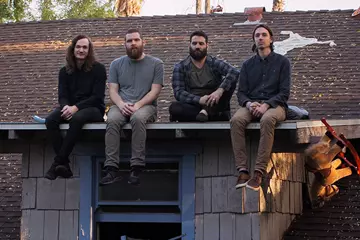 070 Shake
070 ShakeThe New Jersey enigma 070 Shake (aka Danielle Balbuena) is back with the cult album of the year. You Can't Kill Me is an electro-pop opus that philosophises passage – from the known past to an unknown future. It's out-there – and like nothing else.
Having emerged as a member of the 070 collective, Balbuena is invariably described as a rapper. But she's long transcended hip hop, being a musical wanderer to rival the (again) Zeitgeist Kate Bush. The Dominican-American drew mainstream curiosity when, circa 2018, she worked with Kanye West. Balbuena brought her singular aesthetic – Auto-Tuned vocals, heightened melodicism, and euphoric melancholy – to West's fabled Wyoming Sessions projects, notably ye's pinnacle, Ghost Town. In early 2020, she assured her auteur status with the post-genre debut Modus Vivendi on GOOD Music. Tame Impala remixed Guilty Conscience – a song recalling Norwegian band a-ha. Yet, though a critical rave, Modus Vivendi didn't blow up.
Latterly, Balbuena has had hyped, and apparently strategic, collabs. She connected with the EDM supergroup Swedish House Mafia for Lifetime (alongside Ty Dolla $ign) from their surprisingly emotive, but commercially underperforming, album Paradise Again. Balbuena likewise enhanced a remix of a remix of Madonna's '90s electronica ballad Frozen by the masked Canadian trap producer Sickick that went viral on TikTok last year – the Queen of Pop a 070 Shake fan.
However, Balbuena is no gameplayer. As with the now mythic Modus Vivendi, there's been minimal promo for You Can't Kill Me. Neither has Balbuena established the album's narrative with a media cycle (but then nor did Kendrick Lamar for Mr. Morale & The Big Steppers). Crucially, Balbuena has a ghostly social media profile, recently explaining her disquiet about its compulsiveness, fabricated reality, and psychological toxicity to High Snobiety, while emphasising an instinctive desire to be "as present in this life as I can be".
Don't miss a beat with our FREE daily newsletter
In fact, Balbuena's (virtual) disengagement is central to You Can't Kill Me – the LP's previous title the meta You Can't Kill Me Because I Don't Exist. But, again to High Snobiety, she links her dissociation to a belief in predetermination, revealing a highly subjective perception of time. "I was speaking to my friend and we were talking about my lack of social media presence and me being detached from a lot of things [and] never really being too hurt by anything. I see life as if it already happened. Whatever happens, it happened. I can't change it."
On You Can't Kill Me, the present merges with the past and future – Balbuena cognisant that even stillness is illusionary or specious. Indeed, it's an album about entropic existence. Not coincidentally, many songs have the unsettling nonchalance of her earlier single Nice To Have.
Balbuena reunites with two kindred spirits in the studio: Canadian indie-type Dave Hamelin (ex-The Stills) and Mike Dean, the Houstonian in full 'Synth God' mode. In its arrangements, You Can't Kill Me is 070 Shake at her most maximal. The hymnal prelude Web is carried by Balbuena's multi-tracked vocals and translucent synths, reminiscent of both West's prog-hop My Beautiful Dark Twisted Fantasy and Laura Mvula's pastoral psychedelia. She poetically sings of mindfulness in relationships: "Let's be here in person."
Throughout You Can't Kill Me Balbuena ruminates on temporality and change – her outlook inherently fatalistic. In the tuneful lead single Skin And Bones the singer-cum-prognosticator tells a love story – only she isn't merely struck by Cupid as the arrow of time. "And we spoke in past tense/Reminisce 'bout back when our spirits used to dance with each other/We been smokin' gas, yeah, this is so romantic/I never wanna press fast forward/You treat me like I'm more than a pair of skin and bones/And that really made a difference in my story/Life will take its toll, but whichever way we go/Know I'm right here by your side, shorty." It's a chronoception banger.
This temporal – and mnemonic – concept is reinforced by the album's symphonic centrepiece, History, an ode to the melodrama of being. It echoes Prince's Purple Rain but also has the elusive romanticism of James Blake's Retrograde.
Balbuena expresses her queer sensuality on the avant bop Body, complete with wiggly synths (she's currently dating the R&B star Kehlani, who penned melt off blue water road for her). It's a duet with Héloïse Letissier from Christine & The Queens – the LP's sole feature (TV On The Radio's Dave Sitek has a production credit).
Idiosyncratically nostalgic, Balbuena shows her cinematic affinities with Blue Velvet – possibly named after that evergreen memorably recorded by Bobby Vinton in the '60s that David Lynch repurposed for his '80s film. Balbuena's original is hyper-percussive, inclining into broken beat.
Even the transforming tempos, and pitch-altered vocals, on You Can't Kill Me relate to Balbuena's sense of flux. The shift in Come Back Home is subliminal compared to the usual art-rap beat switch, the song opening with piano and strings yet expanding into retro rhythmic rock plus Madonna's 2000s disco – Balbuena ever a sonic time traveller.
Still, Balbuena can be starkly emo. Wine & Spirits, unfurling with acoustic guitar, is deceptively airy folktronica – albeit more akin to Daniel Lanois' ambient rock than Bon Iver's Woods – as Balbuena rues humanity's innate self-destructiveness: "We'll be the fault of our demise/Premeditated suicide."
You Can't Kill Me begins to lose momentum near the end – but then Balbuena pulls out Se Fue La Luz ("the power went out"), a mega hip-hop adiós with Yeezy-level drums.
You Can't Kill Me thematises transience and the cosmic vagaries of consciousness, volition and inevitability in the digital age, but it really is destined to be a sleeper classic.
















